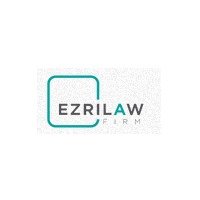Best Nonprofit & Charitable Organizations Lawyers in Malaysia
Share your needs with us, get contacted by law firms.
Free. Takes 2 min.
Or refine your search by selecting a city:
List of the best lawyers in Malaysia

About Nonprofit & Charitable Organizations Law in Malaysia
Nonprofit and charitable organizations in Malaysia play a crucial role in addressing social needs, advancing arts, education, and supporting various causes. Legally, these organizations are governed under various sections of Malaysian law, including the Societies Act 1966, Companies Act 2016, and several tax regulations under the Inland Revenue Board of Malaysia. Each legal structure has specific requirements regarding registration, governance, and reporting, and selecting the appropriate structure largely depends on the organization's mission, operational scope, and resource needs.
Why You May Need a Lawyer
Engaging a lawyer can be immensely beneficial for nonprofit and charitable organizations in several situations:
- To navigate through the registration process, ensuring compliance with all legal requirements.
- When drafting bylaws, policies, or other governance documents that establish organizational structure.
- If questions or challenges arise regarding tax-exempt status and financial compliance.
- To address issues relating to employment law for staff and volunteers.
- When involved in collaborations, partnerships, or mergers with other entities.
- In cases of dispute resolution or legal issues pertaining to fundraising activities or donor restrictions.
Local Laws Overview
The establishment and operation of nonprofit organizations in Malaysia are primarily governed by the Societies Act 1966, the Companies Act 2016, and the Income Tax Act 1967. Key legal considerations include:
- Registration: Organizations can be registered as a society, nonprofit company, or trust, each with specific procedures and implications.
- Governance: Organizations must adhere to the relevant regulations regarding member rights, board responsibilities, and annual reporting requirements.
- Taxation: Obtaining tax-exempt status requires adherence to guidelines provided by the Inland Revenue Board, and restrictions apply regarding the nature of activities and income generated.
- Fundraising: Organizations must comply with laws relating to public fundraising, including specific licensing or permit requirements.
Frequently Asked Questions
What are the main types of nonprofit organizations in Malaysia?
The main types include societies registered under the Societies Act, companies limited by guarantee under the Companies Act, and charitable trusts.
How do I register a nonprofit organization in Malaysia?
Depending on the type of organization, registration can be done through the Registrar of Societies or the Companies Commission of Malaysia, among others, and involves specific documentation and procedures.
What are the legal obligations for maintaining nonprofit status?
Maintaining compliance with annual filings, financial disclosures, and adhering to governance structures as stipulated in the bylaws are crucial for nonprofit status maintenance.
Are there tax benefits for nonprofit organizations?
Yes, registered nonprofits can apply for tax exemptions for certain activities, although they must adhere strictly to the regulations laid out by the Inland Revenue Board.
Can a nonprofit organization engage in profit-making activities?
Nonprofits can engage in profit-making activities as long as these activities are related to their objectives and the profits are not distributed to members but used to further the organization's goals.
Do nonprofits need to have a board of directors?
Yes, most nonprofit structures require a board of directors or a governing body to oversee compliance, strategic direction, and governance duties.
How are foreign nonprofits treated under Malaysian law?
Foreign nonprofits must register with the relevant authorities to operate in Malaysia and comply with local laws and regulations.
What is the penalty for not complying with local nonprofit regulations?
Penalties can include fines, imprisonment of responsible individuals, and suspension or deregistration of the nonprofit organization.
Can a nonprofit lose its status, and how?
Yes, through non-compliance with legal obligations, engaging in prohibited activities, or failing to uphold public trust, a nonprofit can lose its status and face deregistration.
Is it necessary to hire a lawyer for nonprofit registration?
While not mandatory, hiring a lawyer can ensure all legal requirements are met efficiently and minimize the risks of non-compliance or regulatory issues.
Additional Resources
- Registrar of Societies (ROS): Oversees the registration and regulation of societies in Malaysia.
- Companies Commission of Malaysia (SSM): Provides guidelines for companies limited by guarantee.
- Inland Revenue Board of Malaysia (IRBM): Offers information on tax exemptions and compliance for nonprofits.
- Malaysian Bar Council: Provides access to legal professionals and resources relevant to nonprofit law.
Next Steps
If you need legal assistance for your nonprofit or charitable organization in Malaysia, consider the following steps:
- Determine the legal structure most suitable for your organization.
- Consult a lawyer to ensure compliance with Malaysia’s legal requirements.
- Gather all necessary documentation and complete registration procedures with the relevant authorities.
- Develop strong governance and financial oversight mechanisms to maintain compliance with local laws.
- Utilize available resources and professional legal guidance to address specific challenges and needs.
Lawzana helps you find the best lawyers and law firms in Malaysia through a curated and pre-screened list of qualified legal professionals. Our platform offers rankings and detailed profiles of attorneys and law firms, allowing you to compare based on practice areas, including Nonprofit & Charitable Organizations, experience, and client feedback.
Each profile includes a description of the firm's areas of practice, client reviews, team members and partners, year of establishment, spoken languages, office locations, contact information, social media presence, and any published articles or resources. Most firms on our platform speak English and are experienced in both local and international legal matters.
Get a quote from top-rated law firms in Malaysia — quickly, securely, and without unnecessary hassle.
Disclaimer:
The information provided on this page is for general informational purposes only and does not constitute legal advice. While we strive to ensure the accuracy and relevance of the content, legal information may change over time, and interpretations of the law can vary. You should always consult with a qualified legal professional for advice specific to your situation.
We disclaim all liability for actions taken or not taken based on the content of this page. If you believe any information is incorrect or outdated, please contact us, and we will review and update it where appropriate.
Browse nonprofit & charitable organizations law firms by city in Malaysia
Refine your search by selecting a city.















